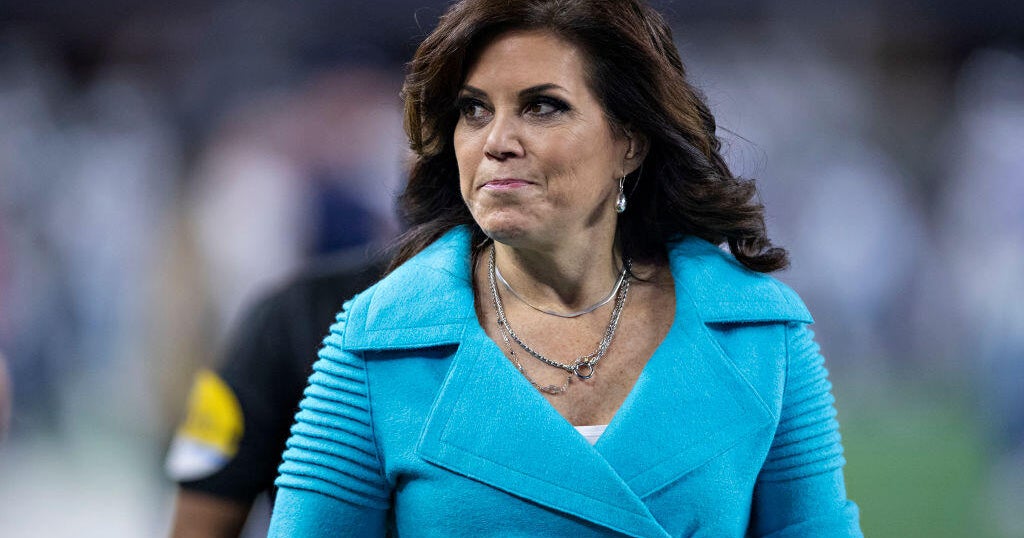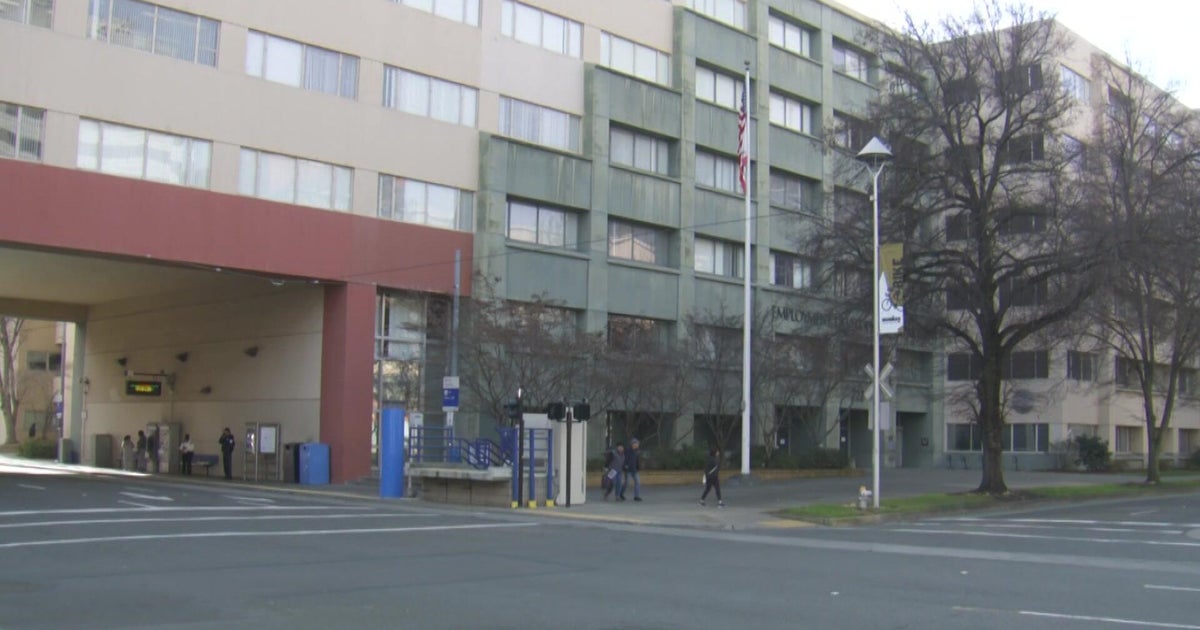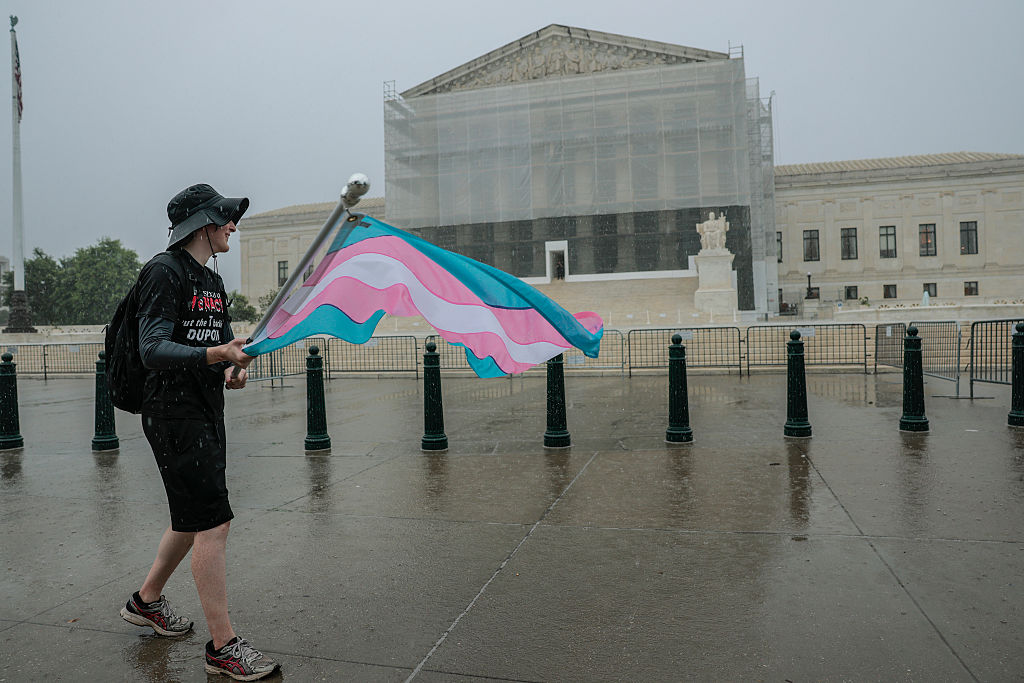Supreme Court wrestles with Biden's COVID-19 vaccine requirements as Omicron cases surge
Washington — As the nation continues to battle the fast-spreading Omicron variant, the Supreme Court's conservative members appeared to cast doubt on the authority of the Biden administration to impose its vaccine-or-test rule on large businesses when it convened for a special session to weigh disputes over President Biden's COVID-19 vaccine requirements.
The rules were announced by Mr. Biden in September and issued in November as part of efforts to combat the coronavirus pandemic, which is entering its third year. The requirements have since been subject to a slew of lawsuits brought by Republican-led states, business associations and companies, which argue the Biden administration overstepped its authority in imposing them.
The legal battles over the two policies arrived at the Supreme Court through emergency requests last month, and the court moved to swiftly schedule oral arguments. It's unclear how quickly the justices will rule.
Justice Sonia Sotomayor, who was diagnosed with Type I diabetes as a child, participated in the arguments from her chambers. She is not ill, the court said. Two of the attorneys arguing before the court, Ohio Solicitor General Benjamin Flowers and Louisiana Solicitor General Elizabeth Murrill participated remotely by telephone.
Murrill's office said she appeared by phone "in accordance with the COVID protocols of the court."
At the heart of the first set of cases is a rule from the Occupational Safety and Health Administration (OSHA) that requires businesses with at least 100 employees to either require workers to be either fully vaccinated against COVID-19 or subject to weekly testing and wear face masks. The vaccine-or-test rule was set to take effect January 4, but OSHA said it will not start issuing citations tied to the new policy before February 9 as long as an employer "is exercising reasonable, good faith efforts to come into compliance" with it.
More than 80 million employees could be impacted by the vaccine-or-test rule, according to the Biden administration, and OSHA has estimated the requirement would save over 6,500 workers' lives and prevent more than 250,000 hospitalizations over the next six months.
GOP-led states, businesses covered by the vaccine policy, business associations and religious groups filed challenges to the OSHA rule in courts from coast to coast, and a divided three-judge panel on the 6th U.S. Circuit Court of Appeals — which heard consolidated cases — said last month the policy could take effect.
Twenty-seven states, along with the National Federation of Independent Business and other entities, then asked the Supreme Court to intervene and block OSHA from enforcing the rule.
Over more than two hours of arguments over OSHA's vaccine-or-test rule, members of the Supreme Court's liberal bloc noted the severity of the coronavirus pandemic and the role that vaccines play both in protecting Americans from severe illness and hospitalization from COVID-19 and in ending the pandemic.
"It's an extraordinary use of emergency power occurring in an extraordinary circumstance, a circumstance that this country has never faced before," Justice Elena Kagan said, noting that the rule is "most geared" to stopping the spread of COVID-19.
"I would think the workplace risk is about the greatest, least-controllable risk with respect to COVID that any person has," Kagan told Flowers later in the proceeding. "Where else do people have a greater risk than at the workplace?"
Justice Stephen Breyer, too, noted that the Omicron variant is driving a spike in new coronavirus infections and rise in hospitalizations, particularly among the unvaccinated, and questioned whether it would be in the public interest for the court to block the requirement amid the latest surge.
"Can you ask us, is that what you're doing now, to say it's in the public interest in this situation to stop this vaccination rule with ... nearly three-quarters of a million people, new cases very day?" he said. "To me, I would find that unbelievable."
But Justice Amy Coney Barrett indicated OSHA's vaccine requirement may be too broad and could be targeted to industries where the threat of infection to workers is more acute, such as for those working in close quarters in a meat-packing plant or dentists.
"The problem here is its scope and that there is no differentiation between the risk faced by unvaccinated 22-year-olds and unvaccinated 60-year-olds or industries?" she asked Scott Keller, who argued on behalf of the National Federation of Independent Business.
Several of the court's conservative justices indicated they are skeptical of OSHA's authority to issue the vaccine-or-test rule and suggested such action should be taken by Congress or the states.
"Why isn't this a major question that therefore belongs to the people's representatives in the states and in the halls of Congress?" Justice Neil Gorsuch asked Solicitor General Elizabeth Prelogar, who argued in favor of the requirement on behalf of the Biden administration.
Gorsuch said that "traditionally," states have had the responsibility of overseeing vaccine mandates, and Congress has had a year to act on the issue of vaccine requirements.
Chief Justice John Roberts said it appears as if the Biden administration is moving agency-by-agency to implement a sweeping vaccine rule.
"The more and more mandates that pop up in different agencies, I wonder if it's not fair for us to look at the court as a general exercise of power by the federal government and then ask the question of well, why doesn't Congress have a say in this and why doesn't this be the primary responsibility of the states," he said.
Vaccine rule for health care workers
The second court battle the Supreme Court weighed involves a rule from the Centers for Medicare and Medicaid Services (CMS) requiring workers at an array of facilities that participate in Medicare and Medicaid to be vaccinated against COVID-19. Health care workers covered by the requirement were required to receive their first shot by December 6 and had until January 4 to be fully vaccinated. The rule from CMS does not have a testing option for unvaccinated staff who refuse to comply, but does include medical and religious exemptions.
An estimated 17 million workers across 76,000 facilities are affected by the vaccine rule from CMS, according to the Biden administration.
Several states challenged the policy for health care workers, and its enforcement was blocked in 24 states. The Justice Department asked the Supreme Court to allow the rule to go into effect in places where its implementation is currently stalled.
After roughly 90 minutes of arguments, some members of the court appeared more open to the Biden administration's arguments for imposing the vaccine rule on health care workers. Kavanaugh said the case presented an "unusual administrative law situation" in which the facilities covered by the rule largely support it.
"Where are the regulated parties complaining about the regulation?" he asked Jesus Osete, Missouri's deputy attorney general. "There's a missing element here."
"I don't know why a provision addressing an infectious disease of this scope is beyond the secretary's determination that the mandate at issue here is necessary," Roberts told Murrill.
Kagan said the "principle responsibility" of Department of Health and Human Services leaders is to protect the health and safety of Medicare and Medicaid recipients, who are among the most vulnerable patient populations.
"All the secretary is doing here is to say to providers, 'you know what, basically, the only thing you can't do is to kill your patients. So you have to get vaccinated so that you're not transmitting the disease that can kill elderly Medicare patients, that can kill sick Medicaid patients,'" she said. "That seems like a pretty basic infection prevention measure: you can't be the carrier of disease."
Sotomayor questioned why the vaccine requirement for the health care workers would be an issue for the states.
"This is the federal government paying for services and why doesn't it have a right as the payer for services to specify what services it want to pay for?" she asked.
Brian Fletcher, a Justice Department lawyer, told the justices that COVID-19 poses an "acute threat" in health care settings, and Americans "shouldn't be forced to choose between getting medical care and exposing themselves unnecessarily to a virus."
The Biden administration told the justices in a brief Monday that the vaccine requirement for health care workers "has never been more necessary than it is now," and the states' claims about the policy's effect on staffing "pale in comparison to the overwhelming public interest in saving lives and preventing serious illness."
But Osete, in arguing for enforcement of the vaccine rule to be blocked, said rural areas of the country would face an "imminent crisis" if it's allowed to take effect, as millions of health care workers would be terminated for failing to comply with the vaccine rule.
Murrill, meanwhile, called the requirement a "bureaucratic power move that is unprecedented."
The court's decision to hear arguments comes as the Omicron variant has swiftly overtaken the Delta variant as the dominant strain in the U.S., making up more than 95% of new COVID-19 infections, according to the Centers for Disease Control and Prevention.
The White House has said the two vaccine policies are key for ensuring employees and patients.





